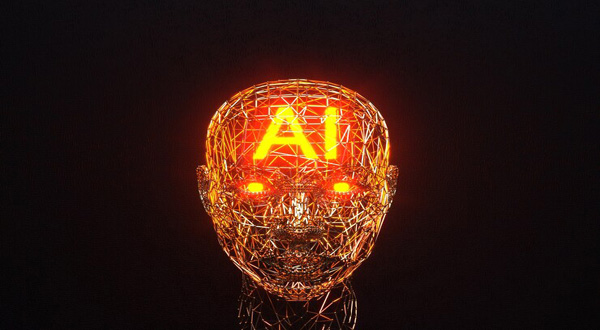Understanding Artificial Intelligence: A Simple Guide for Everyo
- Update Time : Thursday, February 29, 2024
- 24 Time View

Introduction
Understanding Artificial Intelligence: A Simple Guide for Everyone: Artificial Intelligence, often abbreviated as AI, is a concept that’s becoming increasingly prevalent in our daily lives. But what exactly is artificial intelligence, and how does it impact us? In this article, we’ll delve into the basics of AI in simple terms, exploring its definition, applications, and potential implications for society.
Table of Contents
| Sr | Headings |
|—–|——————————————-|
| 1 | What is Artificial Intelligence? |
| 2 | How Does Artificial Intelligence Work? |
| 3 | Types of Artificial Intelligence |
| 4 | Applications of Artificial Intelligence |
| 5 | Pros and Cons of Artificial Intelligence |
| 6 | Ethics and Artificial Intelligence |
| 7 | The Future of Artificial Intelligence |
| 8 | Common Misconceptions about AI |
| 9 | How to Get Started with AI |
| 10 | Conclusion |
- What is Artificial Intelligence?
Artificial Intelligence refers to the simulation of human intelligence processes by machines, particularly computer systems. It involves the creation of algorithms and systems that can perform tasks that typically require human intelligence, such as learning, problem-solving, and decision-making. In simpler terms, AI enables machines to mimic cognitive functions like reasoning, perception, and problem-solving.
- How Does Artificial Intelligence Work?
At its core, AI relies on vast amounts of data and sophisticated algorithms to make decisions or perform tasks. These algorithms process data, identify patterns, and make predictions or decisions based on that information. Machine learning, a subset of AI, allows systems to improve their performance over time by learning from experience without being explicitly programmed.
- Types of Artificial Intelligence
Narrow AI
Narrow AI, also known as Weak AI, is designed to perform specific tasks or solve particular problems. Examples include virtual assistants like Siri or Alexa, which are programmed to understand and respond to voice commands within predefined parameters.
General AI
General AI, or Strong AI, is a hypothetical form of AI that exhibits human-like intelligence and cognitive abilities. Unlike narrow AI, which is focused on specific tasks, general AI would have the capacity to understand, learn, and apply knowledge across a wide range of domains.
- Applications of Artificial Intelligence
Artificial Intelligence finds applications across various industries and sectors, revolutionizing how we work, communicate, and live. Some common applications include:
Healthcare
AI is used in medical imaging, drug discovery, personalized medicine, and virtual health assistants to improve patient care and outcomes.
Finance
In finance, AI is utilized for fraud detection, algorithmic trading, customer service chatbots, and personalized financial recommendations.
Transportation
Autonomous vehicles rely on AI for navigation, obstacle detection, and decision-making, aiming to enhance road safety and efficiency.
- Pros and Cons of Artificial Intelligence
Pros:
– Increased efficiency and productivity
– Automation of repetitive tasks
– Advancements in healthcare and diagnostics
Cons:
– Job displacement due to automation
– Privacy and security concerns
– Ethical implications of AI decision-making
Read More: Understanding Artificial Intelligence: A Comprehensive Guide
- Ethics and Artificial Intelligence
As AI becomes more integrated into society, ethical considerations become paramount. Issues such as bias in algorithms, data privacy, and the impact of AI on employment raise important ethical questions that need to be addressed.
- The Future of Artificial Intelligence
The future of AI holds immense potential for innovation and transformation across various sectors. Advancements in areas like deep learning, natural language processing, and robotics are expected to drive further progress in AI capabilities.
- Common Misconceptions about AI
AI will replace all human jobs.
In reality, AI is more likely to augment human capabilities rather than replace them entirely.
AI is only for tech-savvy individuals.
AI applications are becoming increasingly user-friendly and accessible to people from diverse backgrounds.
- How to Get Started with AI
Interested in exploring AI? Start by learning the basics of programming languages like Python and familiarize yourself with machine learning concepts through online courses and tutorials. Experiment with open-source AI tools and datasets to gain hands-on experience.
Read More: Understanding Artificial Intelligence: Exploring Its Wonders
Conclusion
In conclusion, artificial intelligence represents a transformative force that’s reshaping how we live, work, and interact with technology. By understanding the fundamentals of AI and its various applications, we can better navigate its evolving role in society.
FAQs (Frequently Asked Questions)
- What are the main branches of artificial intelligence?
The main branches of AI include machine learning, natural language processing, computer vision, and robotics.
- Can artificial intelligence think like humans?
While AI can simulate certain aspects of human cognition, such as problem-solving and decision-making, it does not possess consciousness or emotions like humans.
- Is artificial intelligence safe?
The safety of AI depends on how it’s designed and implemented. Proper ethical guidelines and regulations are essential to ensure the responsible development and use of AI technologies.
- Will artificial intelligence take over the world?
Sci-fi scenarios aside, the idea of AI taking over the world is purely speculative. AI systems are created and controlled by humans, and their actions are ultimately governed by human oversight and regulation.
- How can artificial intelligence benefit society?
AI has the potential to benefit society in numerous ways, from improving healthcare outcomes and enhancing productivity to addressing environmental challenges and advancing scientific research.
Whether you’re curious about the basics of AI or contemplating its broader implications, this guide aims to provide a comprehensive yet accessible overview of artificial intelligence for everyone. So, dive in and explore the fascinating world of AI!












